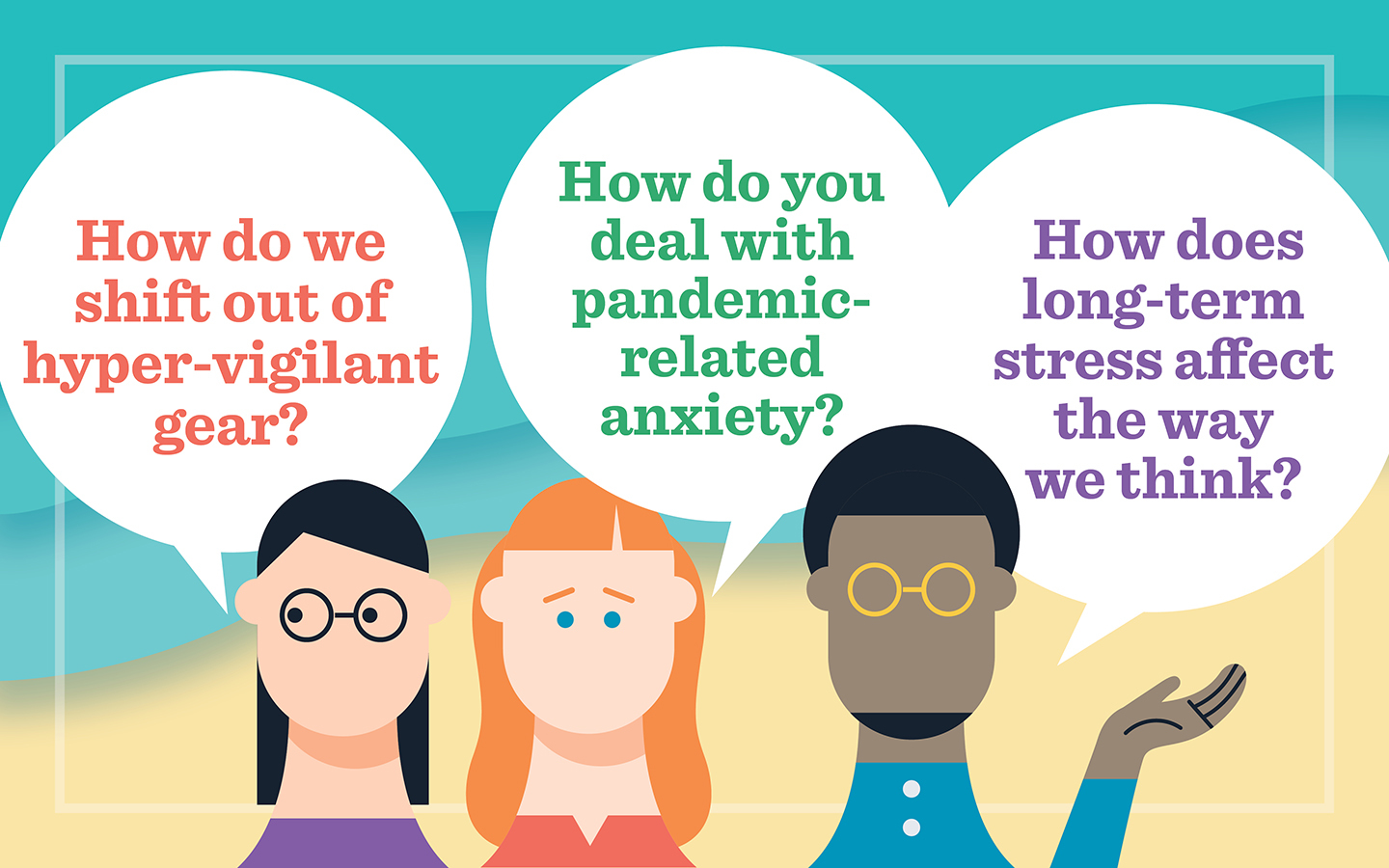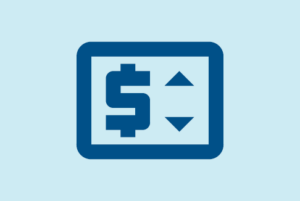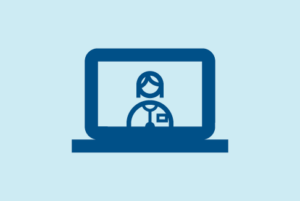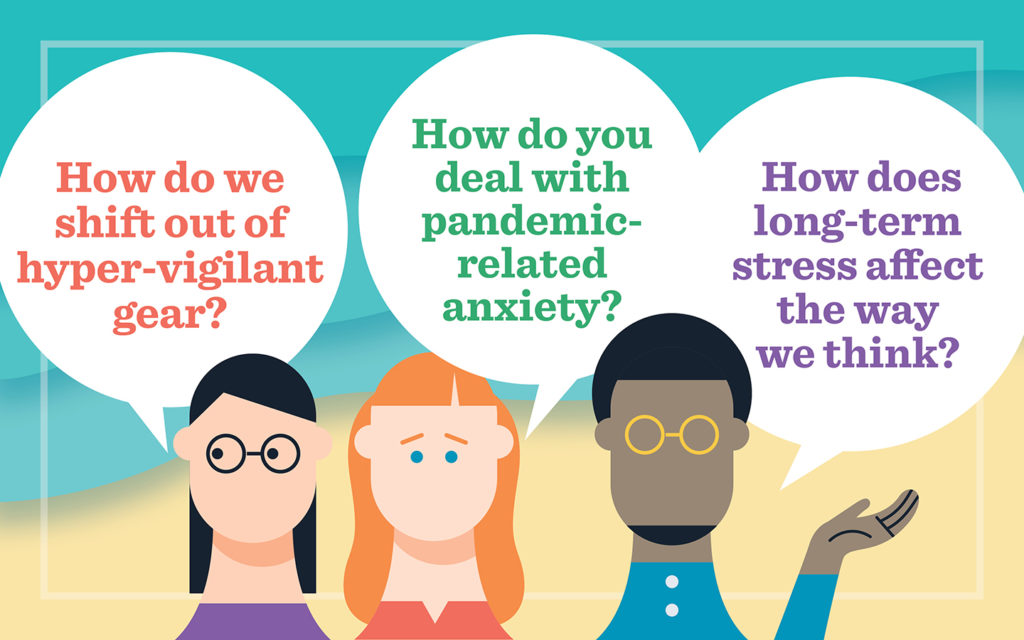
For more than 15 months, our lives have been anything but normal. Seemingly overnight, homes were turned into offices, schools, gyms, and more — essentially a place of refuge for those seeking shelter from COVID-19.
Now, California has fully reopened and the social distancing, some capacity restrictions, and masking mandates for vaccinated individuals are gone. For many, it’s a welcome relief. But for others, after more than a year in “lockdown” there may be some anxiety associated with shedding a mask and crowding into a restaurant or shopping mall.
A 2020 study from the Centers for Disease Control and Prevention found that one-third of U.S. adults reported some symptoms associated with anxiety or depression, most likely related to the pandemic. Now, many are facing a new anxiety: Adjusting to life after the pandemic.
Janet M. Bailey Ph.D., an Integrative Medicine Practitioner and life coach, said that given that we’ve been in a holding pattern for so long, there’s bound to be some apprehension about returning to “normal.” She has advice for anyone who may still have concerns about venturing into public.
A 2020 study from the Centers for Disease Control and Prevention found that one-third of U.S. adults reported some symptoms associated with anxiety or depression, most likely related to the pandemic. Now, many are facing a new anxiety: Adjusting to life after the pandemic.
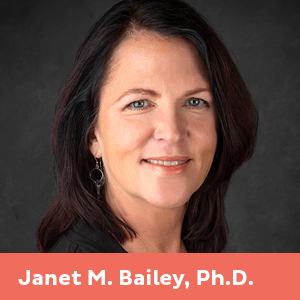
Janet M. Bailey Ph.D., an Integrative Medicine Practitioner and life coach, said that given that we’ve been in a holding pattern for so long, there’s bound to be some apprehension about returning to “normal.” She has advice for anyone who may still have concerns about venturing into public.
Go at your own pace
If you’re not ready to head back into a packed movie theater without a mask, then don’t. Basically, it’s about doing what is comfortable for you, according to Dr. Bailey. You don’t have to dive right in and go from zero to 60 right away. It’s a lot about making incremental changes.
Dr. Bailey is seeing varied responses from her patients.
“Some people are fine with integrating back in (right away), some people are taking it very slow and managing it in a more measured way,” she said. “Being able to talk ourselves through the situation and objectively assess them is important.”
Be patient
Recognize that after 15 months of living a certain way, flipping a switch and immediately going back to how things were might be easier said than done. This elongated state of stress may be a factor in some people’s inability to bounce back quickly. Worries about finances or employment and, in this case, a potentially deadly disease, really contribute to the stress response, and it’s been charged — for a very long time, Dr. Bailey said.
“Our sympathetic nervous system is activated,” she said. “It’s as if that fight-flight-freeze response, and our brain gets stuck in high alert.”
Allow yourself time to down-shift
After months of hyper-vigilance — making sure we have a mask when we leave the house, ensuring we don’t stand too close to someone at the grocery store, etc. — and perhaps a lot of negative thinking, our brains are clicked into that place, Dr. Bailey said. It’s going to take some time for many to down-shift and get reacclimated now that the rules are relaxed.
How do we shift out of hyper-vigilant gear? First, Dr. Bailey advises acknowledging that it’s going to take some time, and it’s also about exposure — almost like retraining ourselves. It’s about being successful and going out. And, then telling yourself, “OK, that was fine, I am safe.”
Communicate your boundaries
Tell people how you are feeling.
“If you’re not comfortable going into big groups or events, you have to be able to tell people, ‘I would really love to see you, but I’m taking kind of a slow approach,’ or ‘I’m waiting to have my vaccines,’ or whatever it may be,” Dr. Bailey said.
Be sensitive to others’ feelings
You might be ready to jump back into life with two feet but recognize that not everyone — even your own family members — feels the same way. Be sensitive to whatever someone’s state of mind is right now.
“I have a lot of families where one of the spouses is vaccinated and the other one is not, and it’s important to honor the choice points for either side,” Dr. Bailey said. “And then, have those discussions about ‘How do we keep ourselves comfortable with what we’re doing?’ ”
Don’t force anyone to do anything
At the same time, be prepared to hear the word “no.” Your spouse, friend, or coworker may not feel comfortable going out and will tell you, “I’m not going to go to the baseball game.” Don’t expect to change their mind. This isn’t about a battle of the wills.
Navigating these situations “involves being collaborative in our relationships to be understood,” Dr. Bailey said. “You don’t have to agree with me, or them, but you just have to respect that choice or boundary.”
Think positively
If you — or someone you know — are worried about going out in public, reframe the situation from a negative to a positive.
“Tell yourself: ‘I have my mask, I have my vaccination — this is not the same situation as it was a year ago’,” Dr. Bailey said. “Taking ourselves to a place of affirmation is a powerful way of viewing the situation and a good strategy for sure.”
Need some additional help with anxiety?
- If employed, you may be able to speak with a clinician through your company’s employee assistance program (EAP). Contact your human resources department for details about how to access these benefits.
- The state’s CalHOPE program also offers free crisis counseling services to help you deal with pandemic-related stress and anxieties about “returning to normal.” It’s simple, confidential and free. Call (833) 317-4673 or visit CalHOPE.org.
- If you or a loved one need assistance after hours, the Substance Abuse and Mental Health Services Administration provides a free National Helpline that’s available 24-hours-a day, 365-days per year: 1-800-662-HELP (4357). The service is confidential, free, and available in English and Spanish.
Want to know the latest COVID-19 guidance?
The COVID-19 pandemic is not yet over and safety guidelines may change frequently. To get the latest information about how to protect yourself and your family, please visit Centers for Disease Control and Prevention and California Department of Public Health.
